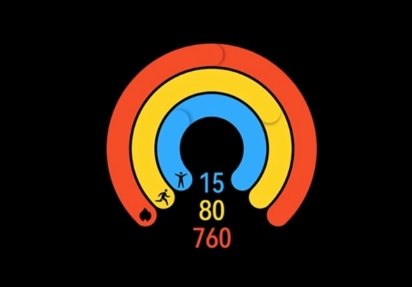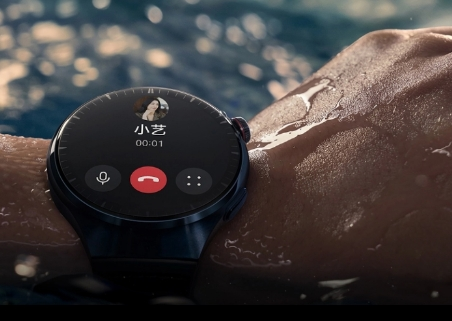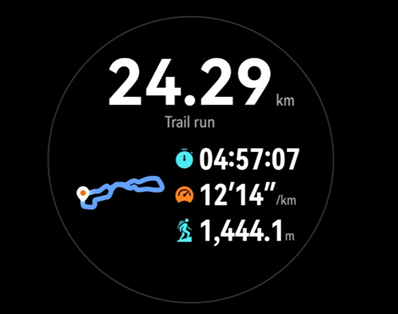Which Sports Are Best Suited for Smartwatches?
Smartwatches have revolutionized how we approach sports and fitness, providing real-time data and personalized insights that can significantly enhance performance. From tracking heart rates to navigating routes with GPS, these devices are more than just digital watches; they are powerful fitness tools. But not all sports utilize smartwatch features equally. Some activities, like running and cycling, benefit greatly from the advanced technology, while others, like swimming and hiking, require specific smartwatch capabilities. In this article, we will explore which sports are best suited for smartwatches and how athletes can take full advantage of the technology.

Running: Tracking Distance, Pace, and Heart Rate
Running is one of the most popular sports for smartwatch users, and for good reason. A smartwatch can track essential running metrics such as distance, pace, and heart rate, helping runners optimize their performance. GPS accuracy plays a crucial role in this, allowing runners to monitor their exact location, track their route, and measure their running distance. Advanced GPS systems in smartwatches ensure that runners can rely on precise data whether they’re running on city streets or wooded trails. Heart rate monitoring is another critical feature for runners. By keeping track of your heart rate in real time, you can maintain the right intensity level throughout your workout. Many smartwatches offer performance-enhancing tools, such as zone-based heart rate training, where the device alerts you when you need to speed up or slow down to stay within your target heart rate zone. This is particularly useful for long-distance runners aiming to manage energy efficiently. For example, the huawei watch D2 offers real-time heart rate monitoring and GPS tracking, making it an ideal choice for runners looking to improve their endurance and overall performance. Its built-in sensors provide accurate data, helping you push your limits while keeping an eye on vital stats.
Cycling: GPS Navigation and Performance Data
Cycling is another sport where smartwatches excel, offering real-time speed and elevation tracking to cyclists looking to improve their performance. Many cyclists use smartwatches to monitor their speed, distance, and even elevation changes as they ride through varying terrains. The combination of GPS and altimeter features allows cyclists to map their routes effectively, ensuring they can track every turn, incline, and descent. In addition to performance tracking, smartwatches offer route mapping and navigation assistance, which is invaluable for cyclists who prefer exploring new trails or roads. The GPS system in most smartwatches can provide turn-by-turn directions and even reroute if you take a wrong turn, minimizing the risk of getting lost. This feature is particularly beneficial for long-distance cyclists who need to focus on their ride without worrying about constantly checking their phones for directions.
Swimming: Waterproofing and Lap Tracking
For swimmers, waterproofing is an essential feature in any smartwatch. Fortunately, many modern smartwatches are designed with water resistance in mind, allowing swimmers to track their performance even underwater. Smartwatches that are suitable for swimming can measure various metrics, including stroke count, lap times, and distance covered in the pool. This data helps swimmers improve their technique and overall performance. Tracking strokes and distance underwater can be a challenge for devices that aren’t designed with swimming in mind, but specialized smartwatches can handle it with ease. By counting your strokes and recording lap times, these devices give you detailed insights into how you’re performing in the water. You can review the data after each session to make adjustments to your technique and pacing. Durability is also a crucial consideration for swimmers, especially those who engage in water sports like diving or surfing. A durable smartwatch that can withstand high-pressure environments and saltwater is necessary for athletes who take part in more intense water-based activities.

Hiking: Elevation and GPS for Outdoor Adventures
Hiking is another sport that benefits greatly from smartwatch technology. Elevation tracking and GPS navigation are essential tools for anyone heading out on an outdoor adventure, especially when exploring unfamiliar terrain. Smartwatches with built-in GPS can help hikers navigate off-the-beaten-path locations, offering detailed maps and route planning options to ensure they stay on track. Measuring elevation gains is another key feature for hikers who enjoy mountain trails. Tracking your vertical progress gives you insights into the difficulty of your hike and allows you to gauge how much further you have to climb. Some smartwatches even offer barometer sensors to measure atmospheric pressure changes, providing additional data on elevation shifts. Navigating remote trails becomes significantly easier with GPS-equipped smartwatches, as they can guide you through complex routes and alert you if you stray too far from your intended path. Additionally, in areas with weak cell signals, smartwatches can provide offline maps, ensuring you always have access to navigation tools.
Strength Training: Monitoring Heart Rate and Calorie Burn
Strength training may not seem like the most obvious sport for a smartwatch, but modern devices offer features that can benefit even weightlifters. Heart rate monitoring is useful during strength training sessions, allowing athletes to track their heart rate and ensure they are working out at optimal intensity levels. Strength training also burns calories, and a smartwatch can help track how much energy you’re expending during a workout, which is beneficial for those focusing on fitness goals like weight loss or muscle gain.
Smartwatch Sensors for Tracking Progress
Many smartwatches come equipped with sensors that can detect various motions, allowing users to track their progress in different exercises, such as squats, deadlifts, or bench presses. By measuring your movement, the smartwatch can provide data on how many repetitions and sets you complete, helping you stay on track with your workout regimen. Some smartwatches even offer fitness plans and guided workouts that are tailored to strength training, offering tips and advice on form, technique, and progress tracking. This makes them a valuable tool for both beginners and advanced athletes looking to improve their strength and endurance.
Conclusion
Smartwatches are valuable companions in a wide range of sports, from running and cycling to swimming and hiking. With features like GPS tracking, heart rate monitoring, waterproofing, and performance data analysis, athletes can maximize their potential and gain valuable insights into their workouts. Whether you're navigating challenging terrain or counting laps in the pool, the right smartwatch can help elevate your sports performance to new heights. As technology continues to evolve, smartwatches will only become more indispensable for athletes seeking to improve their fitness and achieve their goals.
Latest: Can a Sports Smartwatch Replace Your Fitness Tracker?
Next: Exploring the HUAWEI MatePad Pro’s Performance and Display








